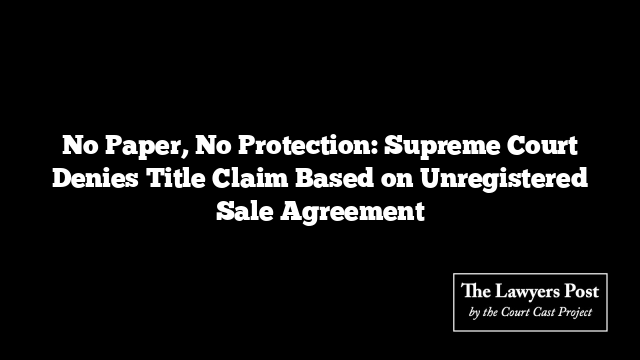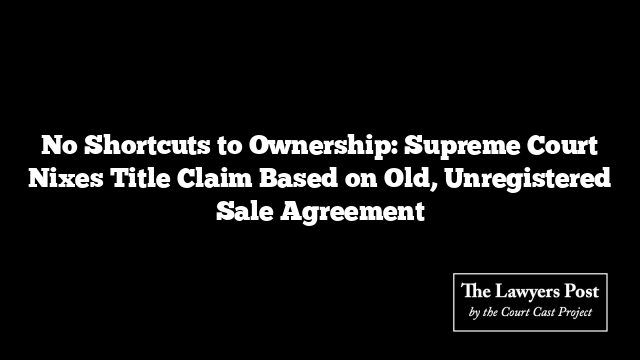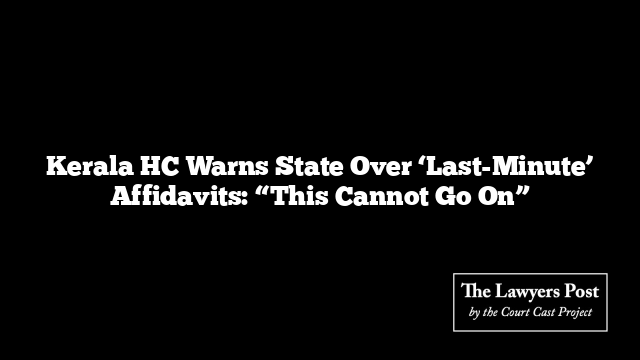The Supreme Court has made it abundantly clear: if you’re holding onto an unregistered sale agreement and expecting it to shield you from being ousted, you’re standing on legal quicksand.
A bench comprising Justices Sudhanshu Dhulia and K. Vinod Chandran dealt a decisive blow to a decades-old claim to land, rooted in a 1982 sale agreement. The supposed purchasers had relied on a document signed by a General Power of Attorney holder of the original landowners. But that document, the Court noted, had one fatal flaw — it was never registered. And under the Registration Act of 1908, it should have been.
The respondents had gone to court seeking protection from eviction by the Telangana State Industrial Infrastructure Corporation Ltd. (TSIIC). They tried to anchor their right to stay on the land using this unregistered agreement, arguing they had acquired valid title and were in lawful possession.
The Telangana High Court’s Division Bench temporarily sided with them, halting dispossession. But the Supreme Court overturned that relief.
Justice Chandran, authoring the judgment, leaned on the precedent set in Suraj Lamp & Industries Pvt. Ltd. v. State of Haryana — a landmark ruling that shut the door on using General Power of Attorney sales as a backdoor to evade registration requirements. The apex court reiterated that an unregistered document — no matter how old — doesn’t magically turn into a valid title deed just because decades have passed or subsequent paperwork refers back to it.
The 1982 agreement, the Court noted, had supposedly been “validated” in 2006 through further documentation. But none of that amounted to a legally sound transfer of property. Since the foundation was flawed, the entire edifice of ownership built on it had to crumble.
“Title is suspect,” the Court remarked, refusing to accept that mere possession amounted to a rightful claim. Without a registered deed, there was neither proof of title nor grounds for legal protection.
The verdict reinstates the Single Judge’s earlier order — which had held that such questions of ownership must be settled in a full-fledged civil trial, not short-circuited through writ petitions.
In simple terms: you can’t skip the paperwork and expect the law to shield you. The message is clear — registration isn’t a formality, it’s the cornerstone of ownership.





